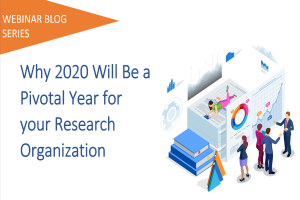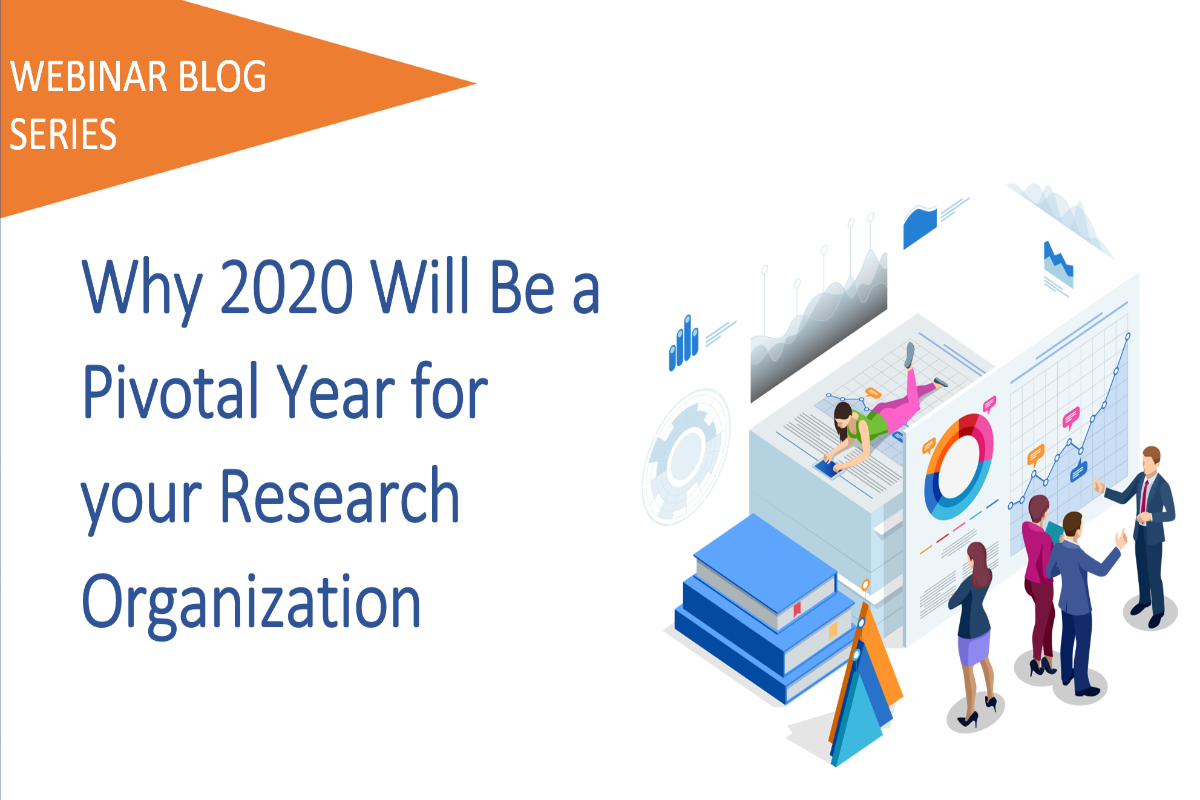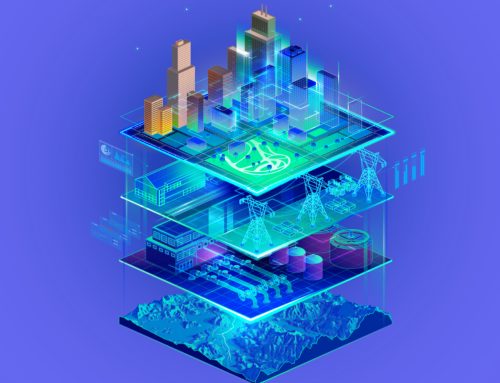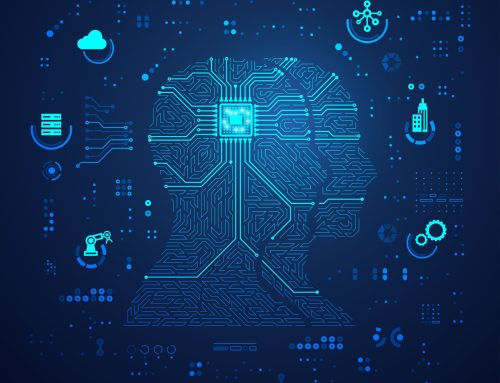Market research and insight delivery is evolving. 2020 is the ideal time to start preparing your organization for 2030.
Technology is changing rapidly. In 2020, we can expect to see major innovations in data science and research processes that will influence this field into the next decade. Let’s examine these trends and see how they will affect the people, skills, and processes involved.
Four Trends Driving Research Innovation
Not all of these are new – for example, the concept of digital twins, discussed below, has been used in scientific applications for decades – but they’re all making their mark in the marketing world. Leaders and organizational decision-makers need to be cognizant of these areas as they move into the 2020s:
- Digital Twins. Digital twins are digital replicas of a physical entity (i.e. a person, organization, etc.). Essentially, they’re a collection of all the data we have on a subject, which is enriched with data on similar subjects. We’re seeing digital twins gain traction in sales and marketing research because we can run simulations on them and get very precise results. We can also scale digital twins; one company, for example, used this technique to run predictions on their client base of thousands of restaurants.
- Data Explosion. We’ve all heard about how much data the world’s billions of devices are producing, but this isn’t the true heart of the data explosion. Not only do we have an unimaginable volume of information, we have a staggering variety of data types now available. This is providing a new field of research that marketers and data scientists alike are eager to tap into.
- The AI-People Partnership. There are rampant fears that AI is going to take jobs away from people. But in this decade, to paraphrase Gary Kasparov, we need to collectively conquer our fear of technology and embrace the idea that tech will allow us to do more than we can do today. Think of adding machine abilities to human abilities, not replacing humans with machines. This human-machine team will be critical to research in the next decade.
- Simplified Decision-Making. Faster, simpler guidance is quickly becoming the desired result from research. It’s like the shift from planning out a route on a map to using a GPS to get real-time, point-by-point directions. Organizations need more than just insights; they need tools that help them dynamically adjust and go from A to B easily and effectively.
What Does This Mean for the Roles, Skills, and People Involved in Research?
The above trends will certainly impact how teams carry out research and insight delivery. Let’s see how each area will be affected:
Roles
With research focusing on providing decision recommendations instead of just insights, the role of researchers and analysts will also shift. Rather than providing information, they’ll be called on to translate that information into possible actions.
Also, expect to see a change from backwards-looking “reactive” research (in which we look at past data, see a change, and try to figure out what happened) to forwards-thinking “proactive” research, where we look at near-real-time data, see something in the process of changing, identify the cause(s), and decide what needs to be done.
Finally, how researchers will deliver insights is also changing. We’re getting away from static presentations and moving towards tools and APIs that directly deliver information to business users.
Skills
What about researchers’ skills? We’ll see tool building (delivering tech tools like the ones described above) and AI coaching (training AI algorithms to improve their performance) become part of the research arsenal. Previously, such things were in IT domain, but as research technology continues to grow, we’ll need human researchers who are comfortable with the tech side of things.
Understanding how decisions are made from an organizational perspective will also be important. While we’ll still spend a lot of time analyzing consumer decision-making and behavior, it will be just as vital to understand organizational processes so that we can provide the right recommendations.
Also, look for creativity to join the research analyst’s Most Valuable Skill set. With AI doing a lot of the routine analytical work, the human part of the human-machine equation will become especially valuable.
Impact
We will see the impact from these changes in three key ways:
- The time to find, communicate, and act on insights will dramatically shorten.
- Insights will be used more broadly. Instead of being primarily utilized by sales and marketing, we’ll see other areas like supply chain management and operations benefit from customer insights. As an example, consider how telecommunications companies use customer usage information to decide where and how to improve their network.
- Insights will move from critical to daily applications. Right now, most insights are used to inform small but crucial decisions (e.g. strategy decisions made by department leads). In the near future, we’ll see insights influence all decisions, including smaller, day-to-day decisions that have a much wider reach.
So, what’s the next step? What should you do in 2020 to prepare your organization for the coming decade?
Future-Proofing Your Organization for the Research Revolution
First, educate yourself. You can start with this on-demand webinar by Absolutdata CEO Dr. Anil Kaul and Senior VP of Growth Analytics & AI Solutions Dr. Sudeep Haldar; it covers the above topics in more detail.
Next, don’t be afraid to start small. Most businesses don’t have a massive bank of data available, and that’s okay. It’s now entirely possible to combine multiple disparate small data sources and use proven analytical frameworks to get results. Implementing AI is not as expensive as many people believe.
As we’ve seen, companies that hesitate to adopt new technologies run a real risk of falling behind the competition. That’s why it’s imperative to start learning now about research trends in 2020 and beyond.
Related Absolutdata products and services: NAVIK ResearchAI, AI & Data Sciences, Market Research , NAVIK AI Platform































